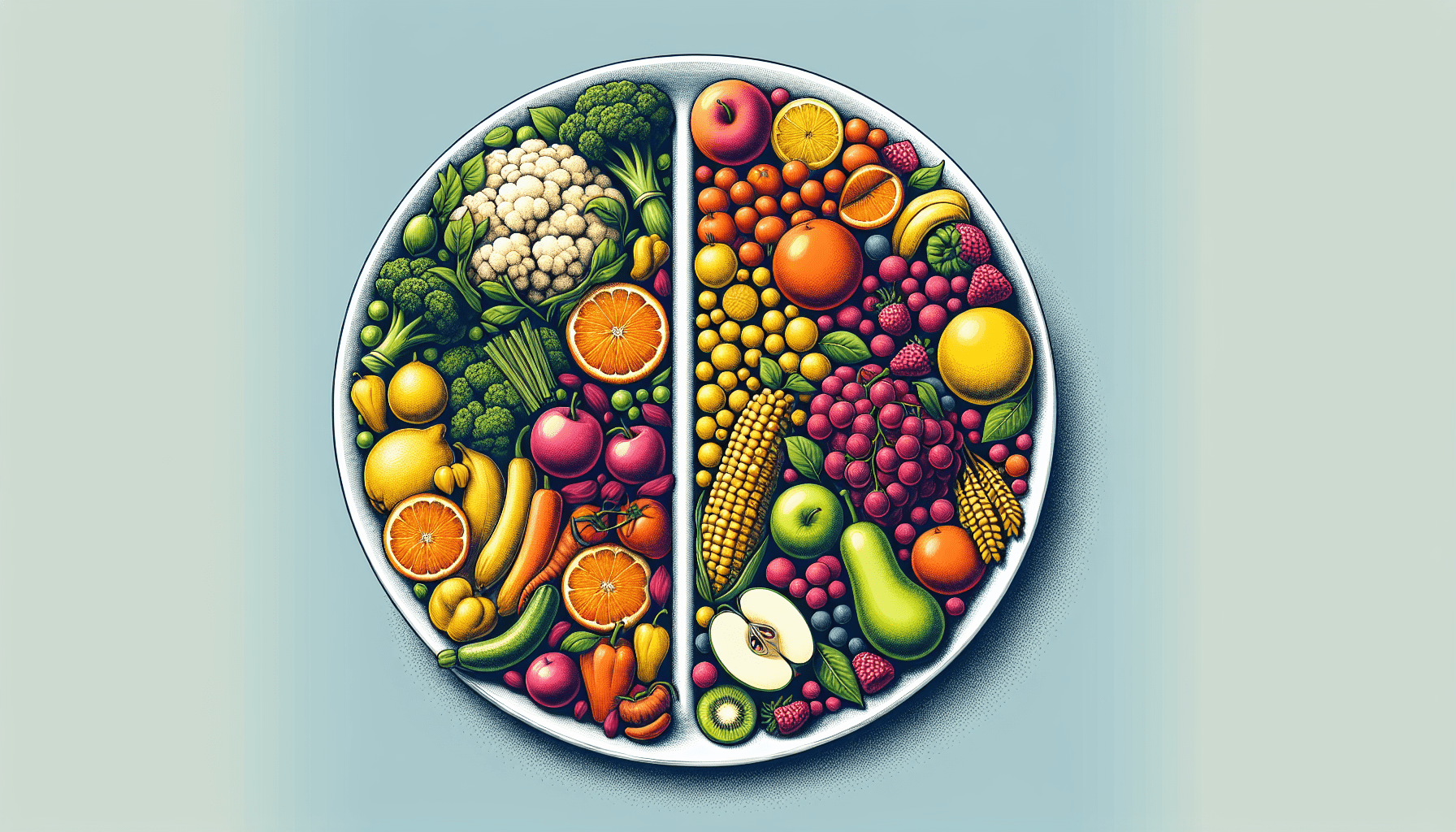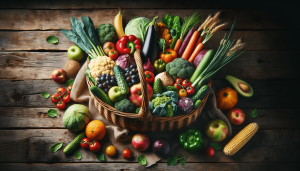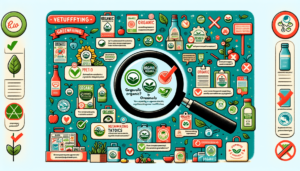Organic foods have become increasingly popular in recent years, as people strive to adopt healthier lifestyles. However, amidst the buzz and enthusiasm surrounding these products, it is important to question whether there are any risks associated with consuming organic foods. This article explores the potential drawbacks and uncertainties that may arise from consuming organic foods, shedding light on an important aspect of this growing industry.

Pesticide Residue Contamination
Possible presence of pesticide residues
When it comes to pesticide residue contamination, there is a possibility that organic foods may still have traces of pesticides. While organic farming restricts the use of synthetic pesticides, it does allow for the use of some naturally derived pesticides. These pesticides, although derived from natural sources, can still leave residues on the crops. This means that even though organic foods are generally considered to have lower levels of pesticide residues compared to conventionally grown foods, there is still a potential for them to be present.
Health risks of pesticide exposure
Exposure to pesticide residues in food has been a concern for many consumers. Prolonged exposure to pesticides can have adverse health effects, such as developmental delays in children, hormone disruption, and an increased risk of certain cancers. While the levels of pesticide residues in organic foods are typically lower than in conventionally grown foods, it is important to note that even small amounts of these residues can still have an impact on human health, especially when consumed regularly over time.
Foodborne Illness
Contamination with bacteria
While organic farming practices prioritize the use of natural methods to control pests and diseases, there is still a risk of foodborne illness. Organic foods can become contaminated with bacteria such as Escherichia coli (E. coli), Salmonella, and Listeria monocytogenes, which can cause serious illness. This contamination can occur during various stages of food production and processing, including during harvest, transportation, and storage. It is crucial for consumers to handle and prepare organic foods with the same care as they would with conventionally grown foods to minimize the risk of foodborne infections.
Risk of foodborne infections
Consuming organic foods does not guarantee protection against foodborne infections. Organic food can still harbor bacteria that cause illnesses. It is important for consumers to practice proper food handling and preparation techniques, such as washing fruits and vegetables thoroughly, cooking foods to appropriate temperatures, and avoiding cross-contamination between raw and cooked foods. These precautions can help mitigate the risk of foodborne infections associated with organic foods.

Nutrient Deficiency
Reduced nutrient content in organic foods
While organic foods are often praised for their superior nutritional content, there is evidence to suggest that they may have reduced nutrient levels compared to conventionally grown foods. Studies have shown that organic fruits and vegetables may contain lower levels of certain nutrients, such as vitamin C, calcium, and magnesium. This reduction in nutrient content may be attributed to differences in soil composition and farming practices between organic and conventional agriculture.
Effects on overall nutritional intake
Consuming organic foods with reduced nutrient content may have implications for overall nutritional intake. If individuals rely solely on organic foods and do not compensate for the potential nutrient deficiencies, they may be at risk of inadequate nutrient intake. It is important for individuals to maintain a varied diet that includes a balance of organic and conventionally grown foods to ensure they receive a wide range of essential nutrients.
Allergic Reactions
Potential allergens present in organic foods
Organic foods can still pose a risk of allergic reactions. Just like conventionally grown foods, organic foods may contain potential allergens such as peanuts, tree nuts, dairy, soy, and gluten. Individuals with known food allergies should exercise caution when consuming organic foods and carefully read the product labels for potential allergen information. Additionally, cross-contamination during processing or packaging can also introduce allergens into organic products, further increasing the risk of allergic reactions.
Increased risk of allergic reactions
Due to the presence of potential allergens and the risk of cross-contamination, individuals with food allergies may face an increased risk of allergic reactions when consuming organic foods. It is crucial for individuals with food allergies to communicate with food producers, read labels carefully, and take necessary precautions to avoid allergen exposure.

Mislabeling and Fraud
Issues with organic food labeling
One of the concerns associated with organic foods is the issue of mislabeling. There have been cases where products labeled as organic were found to contain non-organic ingredients or were not produced using organic farming methods. This mislabeling can mislead consumers who rely on the organic label to make informed choices about their food purchases. It is important for regulatory bodies to enforce strict standards and penalties to address this issue and ensure the integrity of organic labeling.
Possible fraudulent practices
In addition to mislabeling, there have also been instances of fraudulent practices in the organic food industry. This includes intentionally misrepresenting products as organic when they do not meet the necessary organic certification standards. Such practices undermine consumer trust and can have financial implications for both consumers and organic producers. It is essential for consumers to remain vigilant and informed, and for regulatory bodies to implement measures that deter fraudulent practices and protect the integrity of the organic food market.
Limited Availability and Higher Prices
Limited access to organic foods
One of the challenges associated with consuming organic foods is the limited availability. Organic foods may not be as readily accessible as conventionally grown foods, especially in rural areas or in regions where organic farming practices are not widely adopted. This limited access can make it difficult for individuals to incorporate organic foods into their diets, despite their potential health and environmental benefits.
Financial implications of consuming organic foods
Organic foods often come with a higher price tag compared to conventionally grown foods. The cost of organic production, certification, and marketing can contribute to the higher prices. This increased cost can make it financially challenging for individuals or families with limited budgets to prioritize organic food purchases. It is important for policymakers and stakeholders in the organic food industry to work towards making organic foods more affordable and accessible to a wider range of consumers.
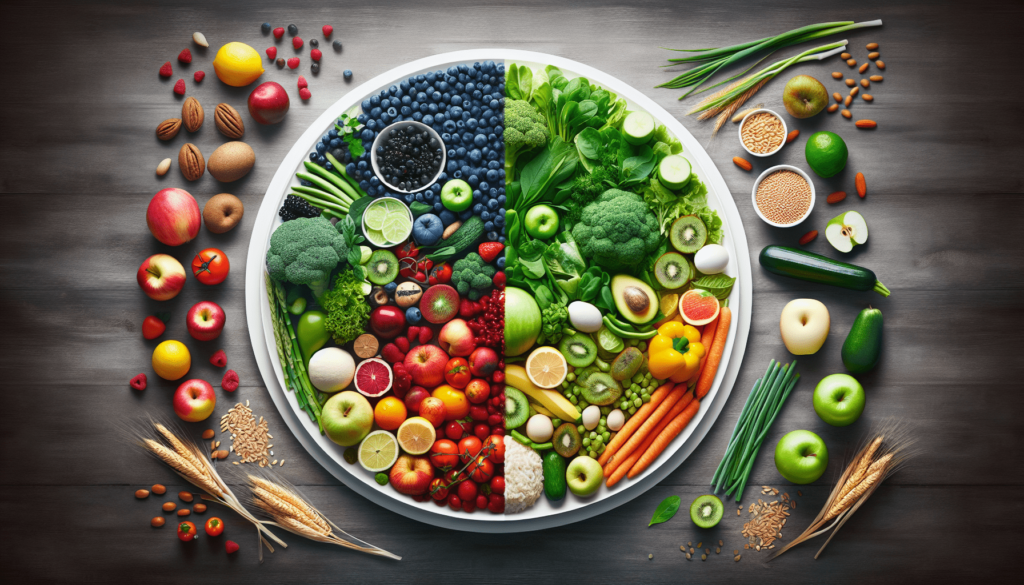
Environmental Impact
Land and water usage for organic farming
Organic farming practices generally prioritize the preservation of soil health and the reduction of chemical inputs. As a result, organic farms often require more land and water compared to conventional farms to achieve similar yields. This increased land and water usage can have implications for the sustainability of organic agriculture, particularly as global food demand continues to rise. It is essential for organic farmers to implement efficient irrigation methods, crop rotation strategies, and soil conservation practices to minimize the environmental impact of organic farming.
Effects of organic agriculture on biodiversity
Organic agriculture can have positive effects on biodiversity by promoting habitat conservation, using natural pest control methods, and avoiding the use of synthetic pesticides and fertilizers. However, some studies have suggested that organic farming may have lower yields compared to conventional farming, resulting in the need for greater land conversion to meet global food demands. This expansion of agricultural land can encroach on natural habitats and biodiversity hotspots, potentially impacting local ecosystems. Balancing the benefits of organic farming with the need to protect biodiversity requires thoughtful and evidence-based agricultural practices.
Lack of Scientific Consensus
Limited research on long-term effects of organic food consumption
While organic foods have gained popularity in recent years, there is still limited scientific research on the long-term effects of consuming organic foods. Most studies focus on comparing nutrient content and pesticide residues between organic and conventionally grown foods, but long-term health outcomes are yet to be fully understood. Further research is needed to evaluate the potential benefits and risks associated with organic food consumption.
Conflicting findings on health benefits
The existing research on the health benefits of organic foods has yielded conflicting findings. Some studies suggest that organic foods may have higher levels of certain beneficial nutrients and lower levels of pesticide residues compared to conventionally grown foods. On the other hand, other studies have shown little or no significant difference in nutrient content or health outcomes between organic and conventional foods. These inconsistent findings contribute to the lack of scientific consensus and highlight the need for further investigation into the potential health benefits of organic food consumption.
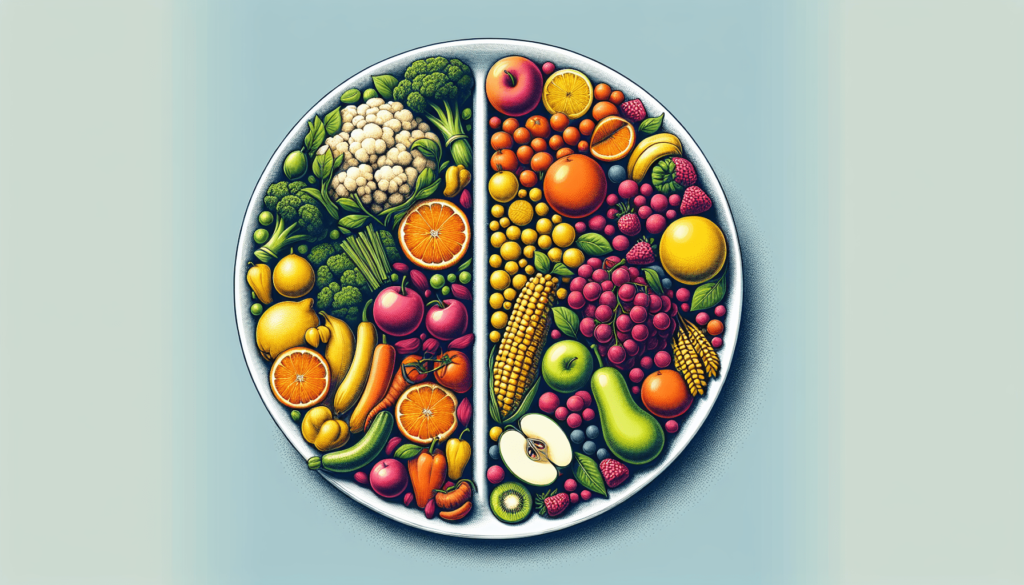
Misunderstanding of Organic Food Standards
Consumer confusion about organic certifications
Many consumers may have misconceptions or a lack of understanding about organic food certifications. Different countries and regions have varying standards and certification processes for organic farming. This can lead to confusion and make it challenging for consumers to make informed choices about the organic foods they purchase. It is important for individuals to familiarize themselves with the organic standards specific to their region and look for reputable certifications that meet internationally recognized criteria.
Varying definitions of organic farming
The concept of organic farming can vary between different organizations, certifications, and countries. While there are general principles that organic farming practices follow, the specific requirements and definitions of organic farming can differ. This variation can create inconsistencies in the organic food market and make it difficult for consumers to understand the true nature and benefits of organic farming. Clear and standardized definitions of organic farming can help reduce confusion and ensure clarity for consumers.
Potential for Contamination from Non-Organic Sources
Cross-contamination with conventional and genetically modified crops
Cross-contamination between organic and non-organic crops can occur through various channels, such as wind-blown pollen or shared irrigation water. This poses a risk for organic crops to come into contact with conventional farming practices, including the use of synthetic pesticides and genetically modified organisms (GMOs). The presence of these non-organic elements can compromise the integrity of organic foods and make it challenging for consumers to ascertain their true organic status.
Challenges in maintaining organic integrity
Maintaining the integrity of organic foods can be a challenge due to the potential for contamination from non-organic sources. Organic farmers must implement strict measures to prevent cross-contamination and ensure that their crops meet the necessary organic certification standards. However, factors such as proximity to conventional farms, seed contamination, and accidental contamination during transportation or processing can pose obstacles to upholding the organic integrity of products. Stringent monitoring and enforcement of organic farming practices are essential to address these challenges and uphold the organic standards.
In conclusion, while consuming organic foods is often associated with various health and environmental benefits, it is important to be aware of the potential risks involved. Pesticide residue contamination, the risk of foodborne illnesses, potential nutrient deficiencies, allergic reactions, mislabeling, limited availability, higher prices, environmental impact, lack of scientific consensus, misunderstanding of organic food standards, and the potential for contamination from non-organic sources are all factors that individuals should consider when making decisions about their food choices. By staying informed, understanding the complexities of organic food production, and practicing responsible food handling and preparation, individuals can make well-informed choices that align with their health, environmental, and personal preferences.

